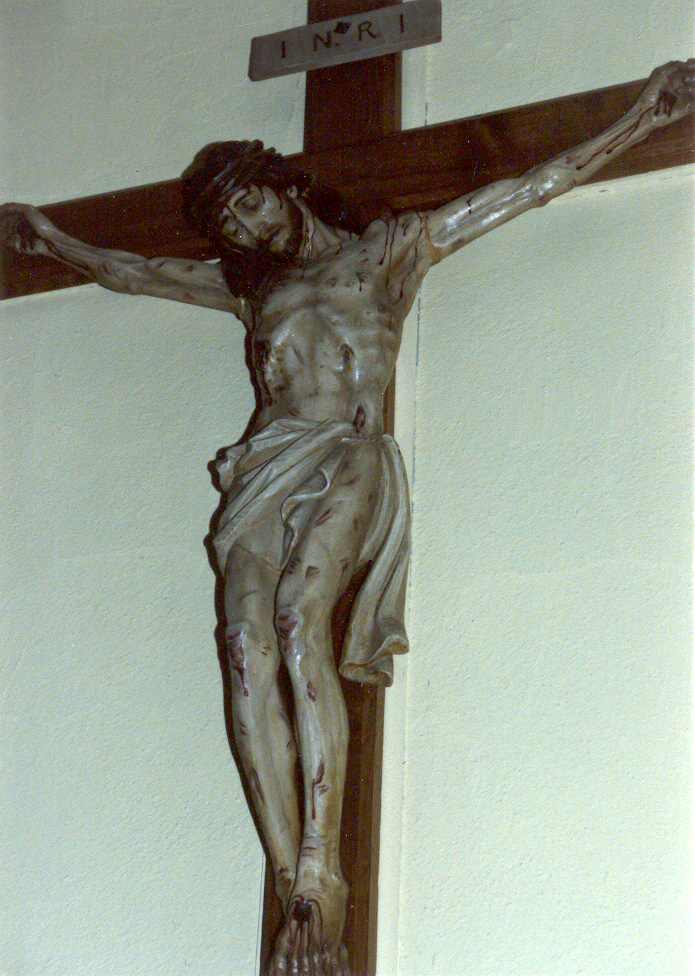
Palm Sunday
A Homily - B Cycle - 2002-2003
Gospel - Mark 11:1-10 or John 12:12-16
First Reading - Isaiah 50:4-7
Psalm 22:8-9, 17-18, 19-20, 23-24
Second Reading - Philippians 2:6-11
Gospel - Mark 14:1-, 15:47 or 15:1-39
Each year, Catholics around the world celebrate this Mass on Palm Sunday and each year we re-visit one of the Passion narratives from one of the Gospels - this year, we read from the Gospel according to St. mark. And while we pay close attention to the details of the events that occurred in Jerusalem in those days that led to Holy Thursday, Good Friday and Easter Sunday, we perhaps may fail to ask one very crucial question, "Did all of this have to happen in order for our redemption to take place?" In other words, could God have decided to save us in a different way?

The Franciscans traditionally answer this question by asserting that while Jesus could have saved us in a different way, He did so in the way that He chose because it would give us the finest example of what it means to die to self and to die for others - after all, man has no greater love than to lay down his life for his friends. Jesus is the great exemplar of self-sacrifice.
The Dominicans offer us another perspective and it is the one espoused by St. Thomas Aquinas. St. Thomas tells us that the way in which God made man, Jesus Christ, chose to die, was the most fitting way for Him to redeem us because it was necessary that He died in the way that He did. Why? You'll recall that for centuries, the Jews had been offering Temple sacrifices in order to make restitution for the sin of Adam and Eve and for their personal sins. These sacrifices mostly took the form of animal sacrifices - goats, lambs, bulls, etc. While these were all well-intended, they were all imperfect sacrifices because the animal victims were all imperfect. So, the only way to have a perfect sacrifice was to have a perfect victim. That victim is Jesus Christ our Lord. He is the divine person who takes on human nature, perfect human nature drawn from the Blessed Virgin Mary. He is a divine person who assumes perfect human nature. He is the perfect sacrifice and not only that - He is also the priest who offers the sacrifice of Himself. When the Father gazes down on Calvary on Good Friday, he says, "Ah, at long last - a sacrifice that pleases me in a way none of the other sacrifices did - this is the perfect sacrifice because this is the perfect victim. This sacrifice satisfies divine justice and now opens the gates of heaven, which to this point had been closed since the original sin of Adam and Eve in the garden.
For
ourselves, this exactly what happens at every Mass. The priest, standing
in the person of Christ, re-presents the sacrifice of Calvary to the Father.
Hence, the Mass is no man-made affair. It is God the Son offering
sacrifice back to God the Father. The Mass is a divine work. We
travel back in time to Calvary and re-present the one and perfect sacrifice that
pleased the Father. This is what inspired Mother Teresa to once say that
what happens in one Mass is more efficacious than all the work that her sisters
have done and will ever do in the world because the Mass is truly a divine work.
So, as we enter into this week called Holy, let us take time to enter into the very mysteries of our redemption. May our active participation in the liturgies of this week, our return to the Sacrament of Penance and our renewed love for the Eucharist, be animated by a deep sense of gratitude for our Lord's having chosen this most fitting and necessary act of love for each of us. As the Cross is raised on Good Friday, may we gaze upon this sign of victory and exclaim.
Praised be Jesus Christ! Now and forever!